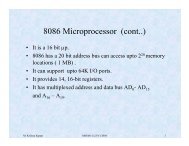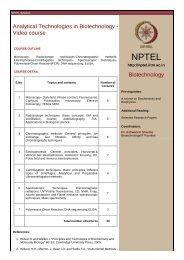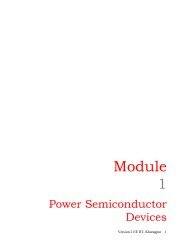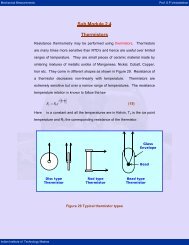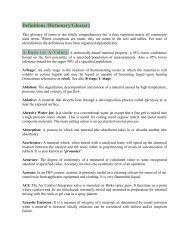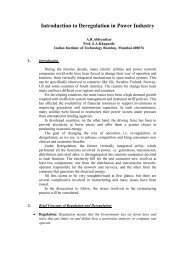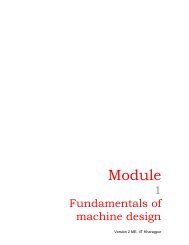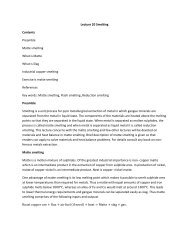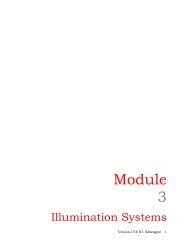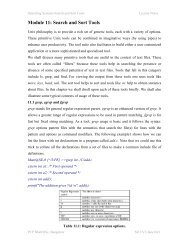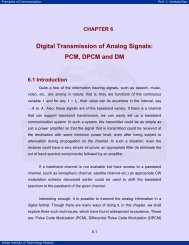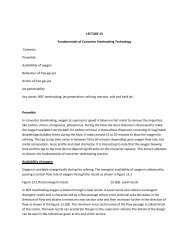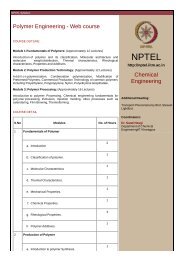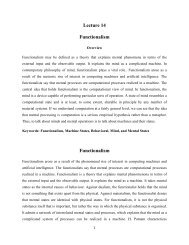Lesson-42: Study of DC-AC Measuring Instruments - nptel
Lesson-42: Study of DC-AC Measuring Instruments - nptel
Lesson-42: Study of DC-AC Measuring Instruments - nptel
You also want an ePaper? Increase the reach of your titles
YUMPU automatically turns print PDFs into web optimized ePapers that Google loves.
increases with an increase in temperature. These changes lead to make the pointer read<br />
low for a given current with respect to magnetic field strength and coil resistance. Use <strong>of</strong><br />
manganin resistance (known as swamping resistance which has a temperature coefficient<br />
practically zero) in series with the coil resistance can reduce the error due to the variation<br />
<strong>of</strong> resistance <strong>of</strong> the moving coil. The swamping resistance ( r ) is usually three times that<br />
<strong>of</strong> coil thereby reducing a possible error <strong>of</strong>, say, 4% to 1%. A multirange ammeter can be<br />
constructed simple by employing several values <strong>of</strong> shunt resistances, with a rotary switch<br />
to select the desired range. Fig. <strong>42</strong>.2(b) shows the circuit arrangement.<br />
When an instrument is used in this fashion, care must be taken to ensure shunt does not<br />
become open-circuited, even for a very short instant. When the switch is moved from<br />
position ‘ B ’ to ‘C ’ or moved to any positions, the shunt resistance will remain opencircuited<br />
for a fraction <strong>of</strong> time, resulting a very large current may flow through the<br />
ammeter and damage the instrument. To avoid such situation, one may use the makebefore-break<br />
switch as shown in Fig.<strong>42</strong>.(c).<br />
The wide-ended moving contact connected to the next terminal to which it is being<br />
moved before it loses contact with the previous terminals. Thus, during the switching<br />
Version 2 EE IIT, Kharagpur



